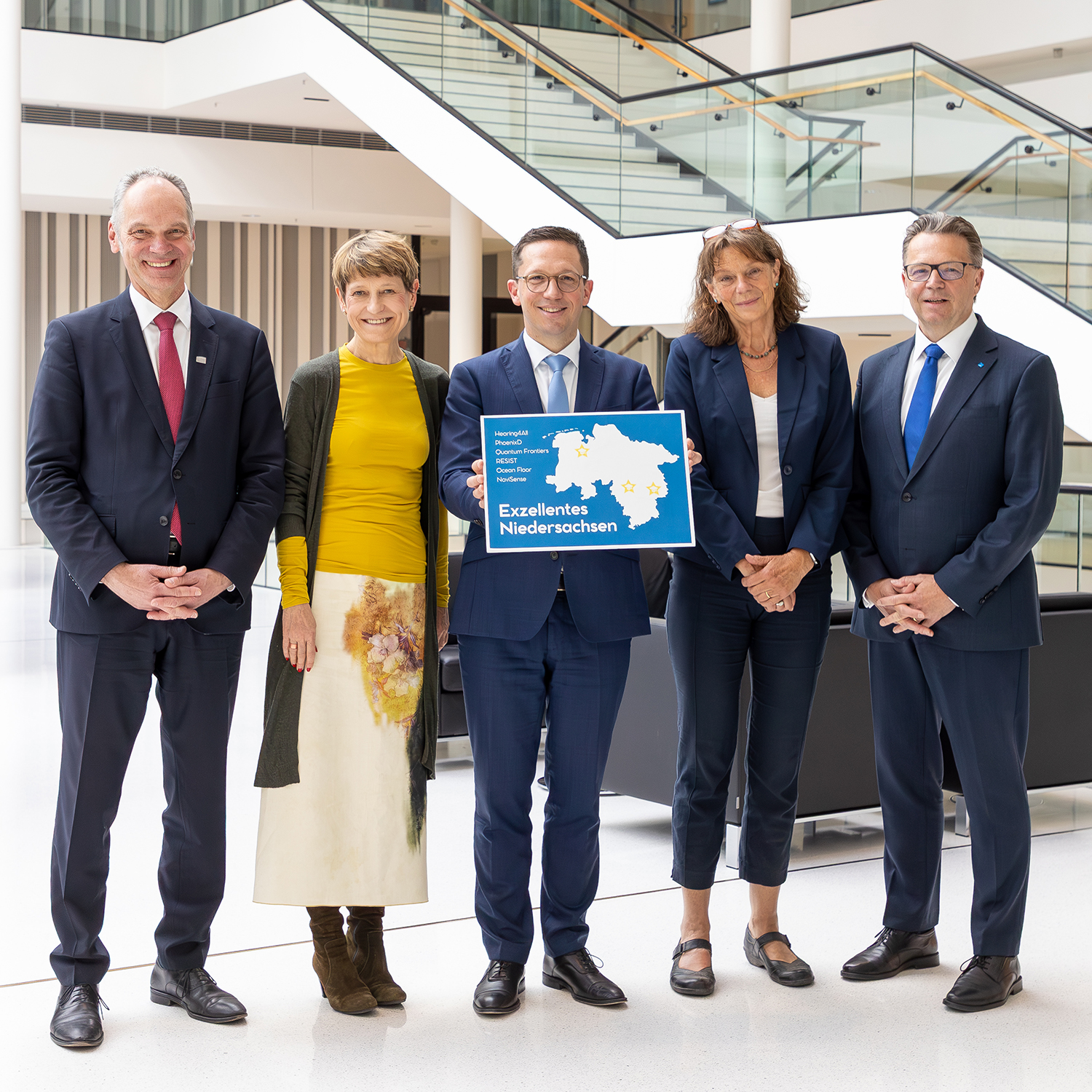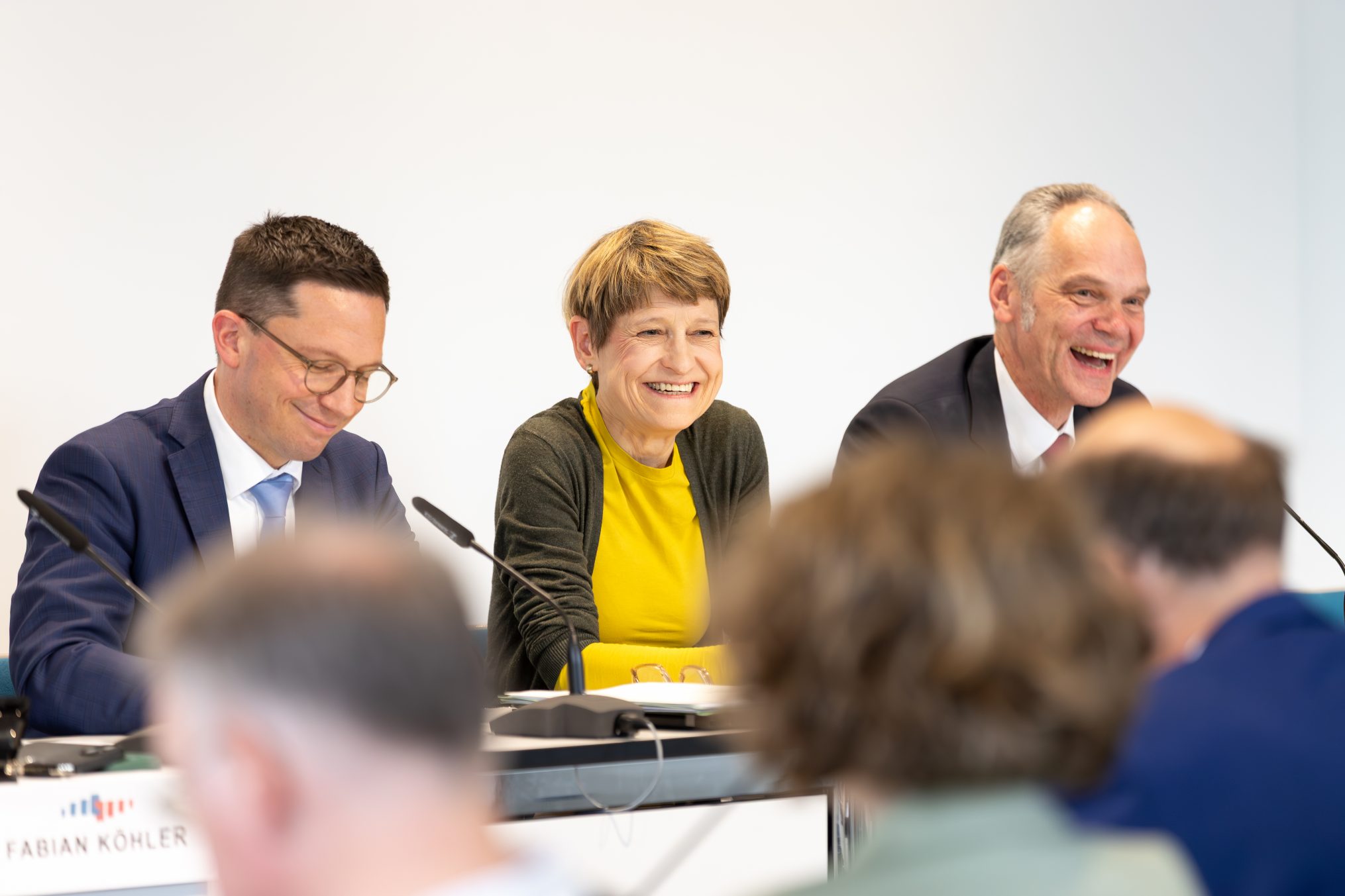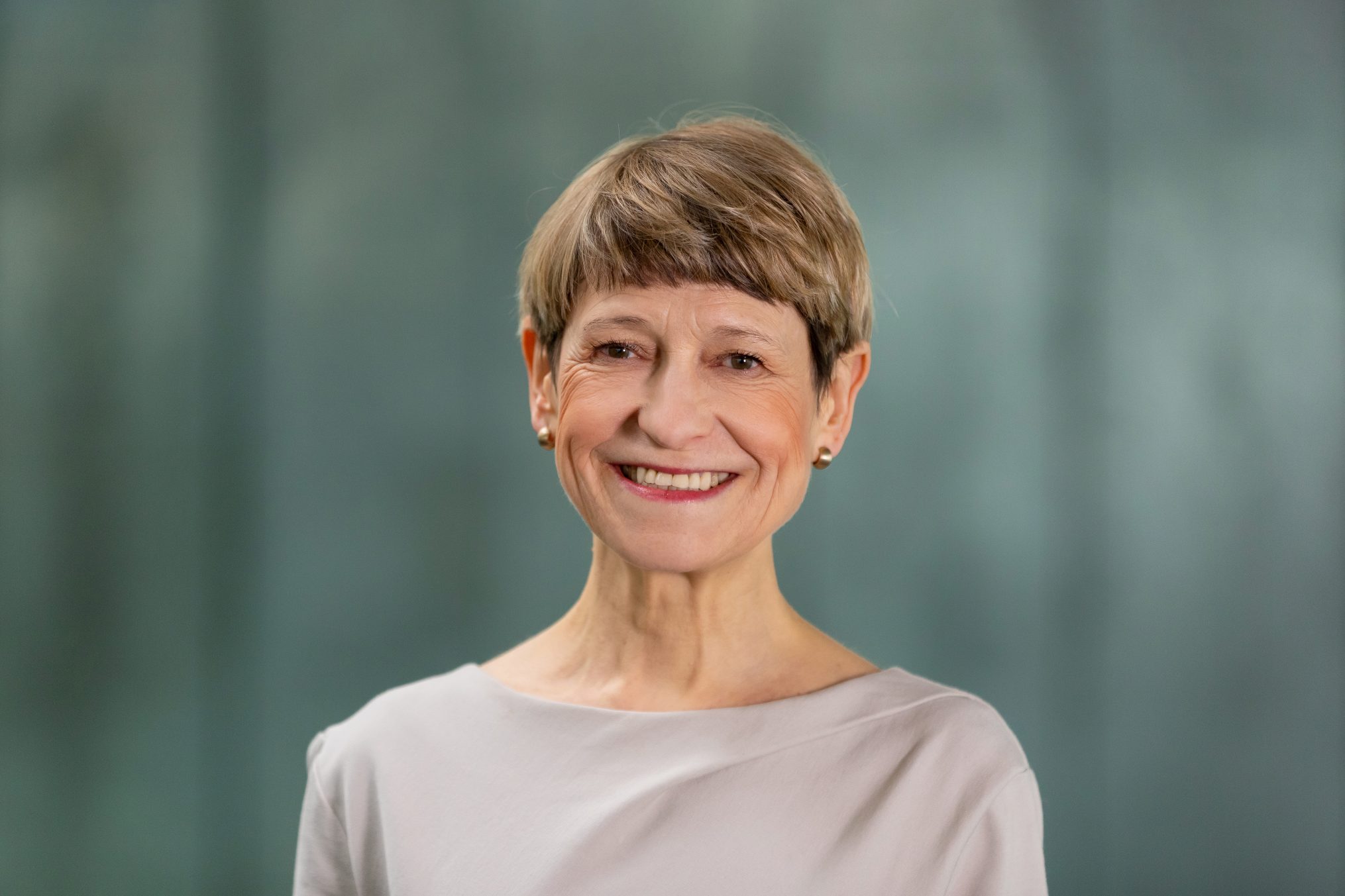Confident about the future!
Following the decisions of the Excellence Initiative, President Prof. Angela Ittel is focusing on her university’s strategic research orientation. A conversation with Dr. Jörn Rieckhoff, press spokesman for the TU Braunschweig.
On 22 May, important decisions were made for Germany as a centre of research when the applications for the Excellence Clusters were approved again or for the first time following a multi-stage selection process. How do you assess the outcome for TU Braunschweig?
TU Braunschweig has been renowned for decades for its world-class interdisciplinary research, particularly in engineering. Therefore, reaching the final round of the Excellence Competition with our two clusters, QuantumFrontiers and SE²A, is a real nod to the excellent quality of our research and infrastructure in Braunschweig, which we are constantly working to improve. Such complex joint projects can only be developed over the long term, and we worked hard to prepare for the rigorous review in Bonn last autumn.
Needless to say, we were keeping our fingers crossed for both clusters. Last Thursday, the reviewers announced that QuantumFrontiers had been successful in the highly competitive scientific competition. Unfortunately, our SE²A cluster will not receive further funding for the second funding period.
Naturally, this is very disappointing news. SE²A is part of our focus on socially relevant sustainable mobility, which we will continue to develop with our national and international partners. Nevertheless, we will carefully analyse the written reports to identify which aspects were not sufficiently developed in this cluster to secure funding. These findings will inform the development of the focus area going forward.
Clearly, this is very disappointing news. SE²A is part of our societally highly relevant focus area on sustainable mobility, which we will continue to maintain together with our national and international partners. Nevertheless, we will carefully analyse the written reports to identify which aspects essential for funding were not sufficiently developed in this cluster. These findings will inform the further development of the focus area.
On the other hand, it is excellent news that QuantumFrontiers has established itself at the very top. We are delighted that this will allow us to strengthen our partnership with the Physikalisch-Technische Bundesanstalt (PTB) and Leibniz University Hannover (LUH) within our scientific ecosystem. This cluster has developed impressively, building up a high-calibre network in terms of both scientific and holistic transfer activities. As TU Braunschweig, we are continuing to establish ourselves on the map of excellence. We can all be very proud of this achievement.

TU Braunschweig President Prof. Angela Ittel with Science Minister Falko Mohrs (centre), Prof. Ralph Bruder (President of Carl von Ossietzky University Oldenburg, left), Prof. Dr. Denise Hilfiker-Kleiner (President of Medizinische Hochschule Hannover) and Prof. Volker Epping (President of Leibniz University Hannover). Picture credits: Kristina Rottig/TU Braunschweig
Why is the QuantumFrontiers cluster so relevant today?
This cluster is where the technologies of the future are being developed. This requires long-term basic research into controlling and measuring the smallest objects in the quantum world. As this research is at the forefront of what can be measured or imagined, it is important to us to include programmes that make science accessible to society. For instance, we explicitly address schoolchildren in various formats to make these topics tangible. Taking such a holistic approach to the development of a large-scale research project like this is a real celebration! I am convinced that there is enormous potential in this area. We at TU Braunschweig will now be able to play a key role in realising this potential over the next few years.
What does this success mean for our university?
Despite fierce competition, we will remain firmly anchored in cutting-edge research in this field. Achieving and maintaining this level of visibility on the excellence map gives us the strategic opportunity to position ourselves as a strong national and international partner. This image also benefits other focus areas at TU Braunschweig. We have been entrusted with the expertise to develop a successful cluster in the long term. I see this as the foundation for developing further lucrative research projects.
How will our region benefit from the continuation of a cluster such as QuantumFrontiers over the next seven years?
As well as the positive effects within our university, there will be further start-ups. This will create jobs for highly qualified people. We will also be able to attract more international and national experts to our scientific ecosystem. The revitalisation of our region that this will bring is an added bonus.
Furthermore, universities listed on the Excellence Map find it easier to attract other attractive cooperation partners and funding in related fields. One example of a research centre that has grown out of the cluster is the Nitride Technology Centre. It is also beneficial for our students to experience professors and lecturers who have direct contact with this cutting-edge research in their teaching.

TU President Prof. Angela Ittel at the state press conference following the announcement of the clusters of excellence. Picture credits: Kristina Rottig/TU Braunschweig
Let’s move on to the other TU cluster, SE²A, which will not be part of the funding period starting in 2026. What future do you envisage for this field of research, particularly given its long-standing significance for Braunschweig as a location?
Mobility has been a key research focus at TU Braunschweig for a long time, as reflected in our excellent infrastructure, including our research centres and research airport. We also enjoy close cooperation with the German Aerospace Centre (DLR) within the scientific ecosystem, and the DLR has played an active role in the cluster.
Sustainable mobility remains an extremely relevant topic for the future. The recent decisions of the Excellence Initiative have not changed this. TU Braunschweig’s cutting-edge research can play a key role in improving our understanding of how we can remain globally mobile without harming the environment.
Will TU Braunschweig’s strategic orientation change gradually following the decision?
Mobility is and will remain one of our priorities. Rather than retreating now, we want to build on our outstanding achievements of the last seven years to define new topics. We are already in discussions with the ministry about this. Additionally, we will consistently pursue our long-term strategy of developing new areas of potential for future research clusters.
We have laid an excellent foundation for this with our high-value application to the zukunft.niedersachsen science programme, which was approved a few months ago. As part of this, we will strategically expand two subject areas under the titles BrightBrain and ReSpace. I am thrilled that experts from a range of disciplines are addressing the critical issues of our time. In BrightBrain, for instance, new research approaches for diseases such as Alzheimer’s, Parkinson’s and diabetes are being developed through the synergy of our research priorities in Metrology and Engineering for Health. Given our ageing society, this type of basic research has immense potential for the future. The same applies to ReSpace!, which combines our research priorities of Mobility and the Future City. ReSpace! is investigating how we can maintain our quality of life and mobility in ‘responsive spaces’ that take environmental changes into account in a sustainable way.
The two research programmes form part of the Strategically Developing Potential call for proposals. In February, TU Braunschweig was awarded €22.5 million — the highest amount of funding in Lower Saxony. Could this remarkable success provide momentum for the university’s further development?
The content of the application is highly relevant. The funding will enable us to expand the scientific ecosystem with our partners over the next five years. In addition to the PTB, DLR and Fraunhofer institutes that I have already mentioned, we have particularly close collaborations with the Helmholtz Centre for Infection Research (HZI), the Thünen Institute and the Julius Kühn Institute (JKI). The aim is to strengthen the interfaces I have just described in order to facilitate cooperation and make the opportunities more apparent.
Within the broader picture of a collaborative and trusting scientific ecosystem, TU Braunschweig will become even more visible internationally and be regarded as an attractive partner. The initiative will begin on 1 July this year, enabling us to implement fundamental support formats for research, teaching and study, knowledge transfer, governance and administration for all groups within our university.
Apart from these diverse plans and areas of potential, what are your thoughts on the future of TU Braunschweig over the next few years?
Firstly, it is important to note that we have developed significantly as a university in recent years. In particular, with regard to excellence, it is important that we have refined our long-term strategy and identified new research potential. Several initiatives have been launched to provide tangible support for our administration and reduce bureaucracy. Alongside research and administration, we are naturally focusing on improving the quality and social relevance of teaching to ensure we remain an attractive location for students. In this respect, it is notable that TU Braunschweig, as well as the university network with Göttingen and Lüneburg, has been awarded a million-euro grant from the Foundation for Innovation in Higher Education. This will enable us to implement innovative teaching and learning formats across the board. Furthermore, I prioritise maintaining a visible presence in the regional economy and fostering open communication and collaboration with our partners in the city and society.
In short, we are at the forefront of our field and are well on the way to a confident and self-assured future. I would like to thank all members of TU Braunschweig who contribute to this ongoing transformation.

